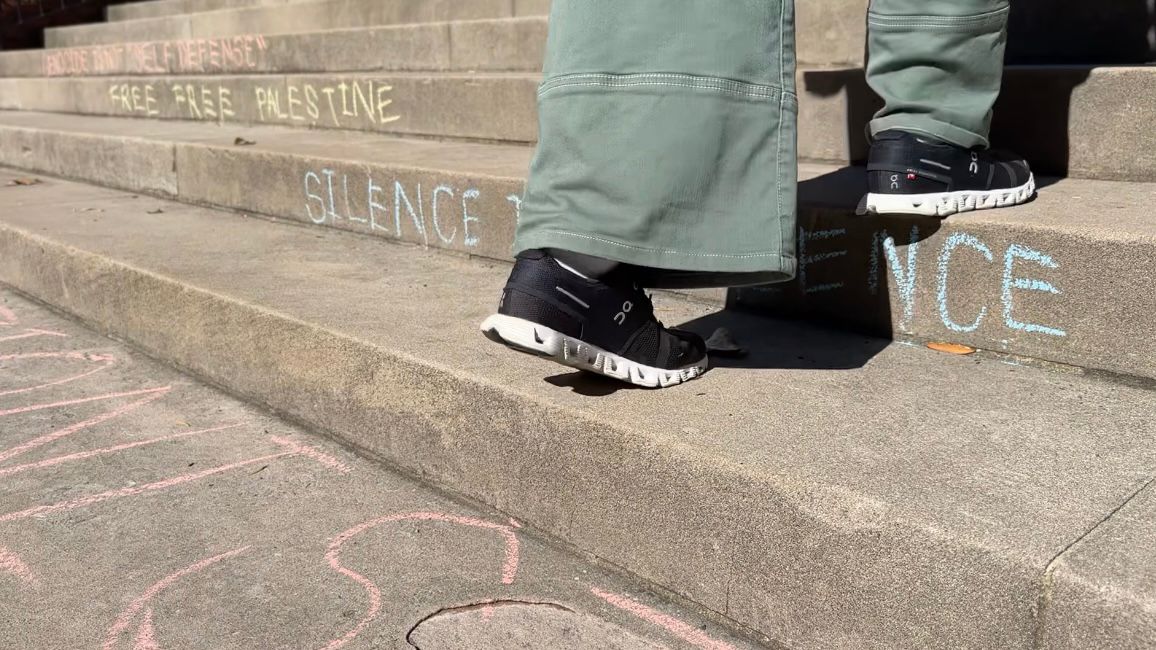CHAPEL HILL, N.C. – As the Israel-Hamas war continues, unrest is on the rise at the UNC-Chapel Hill campus, where a little over a week ago, protesters on each side of the conflict grew confrontational at a rally.
One professor believes the university is not doing enough to keep the campus safe, especially for Israeli students and staff.
Chalk messages are a common form of expression on college campuses. Some currently marking the ground at Chapel Hill call for a “Free Palestine,” say Israel is a “genocidal state,” and encourage other students to get involved with the statement “silence is violence.” One calls Zionists a vulgar word.
These sentiments have caused Dr. Yael Shiloh-Malawsky, a professor in the school of medicine, to call for the university to do more to protect Israeli supporters on campus.“People who support Israel are afraid on this campus,” Shiloh-Malawsky said.
“There's only this message of calling for genocide, supporting radical Islam, ISIS, Nazi, Hamas messaging. But there is not one Israeli flag, one 'We stand with Israel,' not one, not one. This is awful. We're part of this campus as well."
After Spectrum News 1's inquiry regarding the chalk messages, the university sent out a message to all students and faculty resharing information regarding demonstrations and free speech on campus. It stated:
“Under the first amendment, the University cannot prohibit a person from speaking on campus because some in our community may not agree with what that person has to say or because their speech is considered offensive or even hateful. However, our practice of upholding the law does not mean the University endorses or approves such speech in any way.”
As of Wednesday, the chalk was still on the ground on campus. Profane words had been smudged out.
Based on a 1988 Supreme Court ruling, language on a sign cannot be prohibited just because it will offend some viewers. Other court rulings have shown profanity is considered extremely vulgar and improper but does not classify as hate speech.
In the landmark decision of Chaplinsky v. New Hampshire, the court held that unless “fighting words” are involved, profane language has First Amendment protection.
“I wrote to the chancellor, and I said to him, ‘Is this what UNC is standing for, for genocide? Is this what you, as the head of this university, stand for? Allowing genocide hate messaging by this group that is openly saying that they're supporting Hamas? How can this be?’” Shiloh-Malawsky said.
Chancellor Kevin Guskiewicz’s message from Oct. 13 says the university is committed to allowing people to express their opinions but strives to rise above hate speech. His statement said they aim to provide an environment where everyone feels safe and supported.



